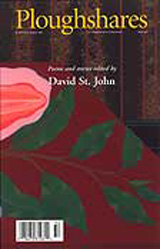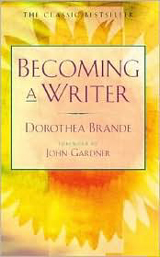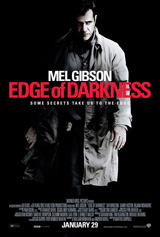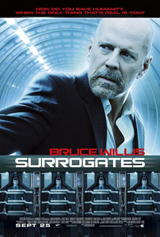Eden.
Tag Archives: Cambridge
The Orchard at Grantchester
Filed under artist date
King Lear at the Globe Theatre
Tonight we participated in one of London’s premier literary events—King Lear at the Globe. The theater is a re-creation of the venue in which Shakespeare’s contemporaries would have attended his plays, best experienced, we were told, from the “yard.” Standing. For three hours.
Which wouldn’t have been so bad except we started the day with a walking tour, and then I spent my free afternoon at the National Gallery standing in front of paintings, and then I walked to the Globe.
I’ve never read King Lear, although I find it quite serendipitous that I happen to be reading A Thousand Acres right now. If I hadn’t been so uncomfortable, I could have paid closer attention, followed it better, enjoyed it more.
But I will never forget Gloucester’s eyes getting ripped out of their sockets.
Caught in the ’Net
The Emmy nominations have been announced. Scroll down to the bottom for the writing categories (it’s alphabetical, not hierarchical!).
Filed under artist date, news
There’s No Such Thing as Writer’s Block
For yesterday afternoon’s screenwriting class, we had a guest speaker: Trainspotting author Irvine Welsh, currently on a book tour for Crime. Unexpectedly for a writer of his cult stature, he didn’t just show up to be interviewed by Antonia, with whom I believe he’s currently working on a screenwriting project, or answer questions from the class, although he did that, too. (Sample question, paraphrased: “How did you accurately capture what it’s like to take heroin?” Answer: “Personal experience.”)
Rather, working from the theme of “story,” Irvine came prepared with a lecture, a group exercise that demonstrated the collaborative nature of screenwriting, and a writing prompt that I thought I’d share.
There’s no such thing as writer’s block, Irvine said. He’s always working on more than one project, so if something isn’t working, he can move on to something else. Or a writing exercise, like this one, can get the juice flowing again (no pun intended):
Divide a sheet of paper into four quadrants. In the first rectangle, write down your favorite color. Then write a couple of sentences describing a person wearing an article of clothing of that color.
In another rectangle, write down an animal. Then write a couple of sentences describing what the animal looks like. If you chose a dog, for example, what kind of dog is it? What color is it? How big or small is it?
In the third rectangle, choose a place. This could be very specific (your grandmother’s tomato plot) or broad (a metropolis). Describe the place.
Finally, choose an event. Any event. Could be a major occasion like a graduation or wedding or a minor occurrence like a fender bender.
Now, take 20 minutes and incorporate these four elements into a story that is at least six paragraphs but no more than eight.
Why we needed to do this exercise on oversized sheets of paper, or divide the page into four parts, for that matter, isn’t clear. And generating brand-new material on the spot is always intimidating.
But I enjoyed this exercise. It felt good to be producing work under pressure again. Here’s what I came up with, with some additional polishing this afternoon, and I may have cheated by putting all the dialogue together in the second-to-last graph:
Richard hoisted himself out of the cab and paid the driver, tipping him with unusual generosity. He pulled on his pants, tight now around the waist, so the cuffs dropped back down over his ankles, brushed the wrinkles out of his musty suit jacket, and straightened his tie. Although traffic was slower than during the week, gusts of air from passing vehicles pushed at his back. He took a deep breath and looked up at the bell tower, then walked toward the church. The service was over. Other congregants—touching each other and smiling—were already filing into the reception. He was met at the door with a warm hug.
“Are you a friend of Miriam’s?” asked the young woman greeting the arrivals. She wore a yellow dress—Miriam’s favorite—and could have passed for Miriam herself.
Richard nodded. The mood was buoyant, but he was too overwhelmed to risk trying to speak. Inside, he signed the guestbook and nodded silently at more of Miriam’s friends and relatives. He pulled a card from his suit jacket pocket and put it in the basket. He hadn’t known how much to put inside and had settled on twenty dollars. Children in tiny suits and ruffled dresses chased each other among the tables. Loved ones separated too long by too many miles embraced and asked after spouses, children, jobs, vacations. Laughter burst from pockets of people like roman candles.
The pastor tapped his glass with a knife, bringing the room to order, and led the group in prayer. After “amen,” he said, “Would anyone care to say a few words?”
Richard stood. Conversations petered out, and the room groaned with chair legs scraping the floor as the guests turned to stare at a man no one else knew.
“When I first met Miriam,” he said, clearing his throat, starting again. “When I first met Miriam, she had just moved to the city.” A few small smiles encouraged him to continue. “It was raining, but she wanted to ride a horse.” Quiet, knowing chuckles at the homesick farmgirl. “I suggested she come back another day, when the weather was nicer, but she insisted she needed to ride right then and there.” He looked down at his glass, remembering the tiny young woman in cowboy boots and blue jeans, hair pulled back in a ponytail, brown bangs plastered to her forehead. “I picked out a gentle Welsh pony for her, but she had other ideas—” Snorts of laughter interrupted Richard’s story. He waited, gaining momentum. “She pointed out Big, a big, brown, spirited quarterhorse that I didn’t usually let clients ride.” Heads nodded. “I said, ‘Are you sure?’ She said, ‘Oh, yes, I’m sure. That’s the one.’ Well, she threw her leg up on ol’ Big and trotted away through the rain in a bright yellow slicker.”
Richard blinked away tears. “I’ll miss you, Miriam,” he said, raising his glass to the portrait displayed at the front of the room. “Rest in peace.”
color: yellow
animal: horse
place: city
event: funeral
Filed under creative process
Learning Styles
Two days in to our screenwriting workshop with Antonia Bird (Ravenous) and Marcella Forster, it’s clear that we’ll be engaging the material with a lot of in-class exercises. The course started yesterday right away with a questionnaire to help us identify our learning styles.
A testament to the usefulness of the exercise was that universally the students found their diagnoses to be spot-on—and were enthusiastic about the verdicts. We theorists quickly bonded, as did the other groups, and the running joke among the largest group is that they need a moment to “reflect.”
More than fun and games, though, we were next asked to consider how these labels help us to understand our writing.
For example, I’m a theorist. (Or, more accurately, a theorist-reflector.) I “have a methodical and logical approach to most things,” and, yes, in my writing I like to have it worked out in my head before any words go on the page. I definitely respond to structure. Making lists of things to do eases my anxiety. And I am constantly breaking big problems down into smaller, manageable pieces so that I can approach them methodically and logically.
I “like to analyze ideas in a detached way, asking questions and making mental connections until [I] have integrated new theories into a comprehensive overview.” Indeed, I prefer to listen to lectures and take notes for later review and incorporation into my own work. I am “not usually happy with intuitive thinking or subjective judgments.” Oh, yes, that’s absolutely true: there has to be a reason for doing something, a rule!
I am a perfectionist “with set ways of doing things,” which is probably why I find this blog format such a challenge—I am uncomfortable clacking out casual prose and posting it for the world to see!
Finally, I “pay attention to detail, which can be of great benefit—or may serve to slow [me] down and stand in the way of creativity.” I definitely am a slow writer, and at times I find my work emotionally cold.
Now it’s your turn. What’s your learning style, and, more importantly, how does it help you to understand your writing?
Questionnaire
1. Do you find it easy to meet new people and make friends?
2. Are you cautious and thoughtful?
3. Do you get bored easily?
4. Are you a practical “hands-on” kind of person?
5. Do you like to try things out for yourself?
6. Do friends consider you to be a good listener?
7. Do you have clear ideas about the best way to do things?
8. Do you relish being the center of attention?
9. Are you a bit of a daydreamer?
10. Do you keep lists of things to do?
11. Do you like to experiment to find the best way to do things?
12. Do you prefer to think things out logically?
13. Do you like to concentrate on one thing at a time?
14. Do people sometimes think of you as shy and quiet?
15. Are you a bit of a perfectionist?
16. Are you usually quite enthusiastic about life?
17. Would you rather “get on with the job” than talk about it?
18. Do you often notice things that other people do not?
19. Do you act first and then think about consequences later?
20. Do you like to have everything “in its proper place”?
21. Do you ask lots of questions?
22. Do you like to think things through before getting involved?
23. Do you enjoy trying out new things?
24. Do you like the challenge of having a problem to solve?
Scoring
Please circle the numbers of the questions you answered with a “Yes” and then add up the number of circles in each row to give your total row score.
Pragmatist: 4, 5, 11, 13, 17, 24; total =
Activist: 1, 3, 8, 16, 19, 23; total =
Reflector: 2, 6, 9, 14, 18, 22; total =
Theorist: 7, 10, 12, 15, 20, 21; total =
Learning Styles
PRAGMATISTS enjoy new theories and techniques. They can often see instant applications and are keen to try out their ideas in practice. They enjoy the challenge of having a problem to solve and quickly come up with practical solutions. They are rather impatient with long-winded planning and discussion, preferring to “get on with the job.” They are tightly focused-concentrating on the job in hand until it is completed. This can sometimes result in tunnel vision. Pragmatists are often task-oriented rather than people oriented.
ACTIVISTS are “here and now” people who are keen to try anything once. They tend to act first and think about the problems afterwards (if at all). They are gregarious people who enjoy being the center of attention. They are excited by anything lively and vibrant but quickly get bored with the routine and mundane. They are creative in their thinking and come up with innovative solutions to problems but lose interest with the implementation or long term consolidation of plans.
REFLECTORS like time and space to think things through carefully before coming to a conclusion. They listen carefully and gather information to help them make rational and considered judgments. They prefer to act as observers rather than be involved in the thick of things. Because they often adopt a low profile, they may be thought of quiet or shy. Nevertheless, “still waters run deep,” and their considered opinions should not be ignored. Reflectors often find it difficult to make decisions.
THEORISTS have a methodical and logical approach to most things. They like to analyze ideas in a detached way, asking questions and making mental connections until they have integrated new theories into a comprehensive overview. They are not usually happy with intuitive thinking or subjective judgments. They are often perfectionists with set ways of doing things. Theorists pay attention to detail, which can be of great benefit—or may serve to slow them down and stand in the way of creativity.
Reference
Fewings, John, Humberside Training and Enterprise Council, 1999.
Caught in the ’Net
Writer’s Digest releases 2008’s 101 Best Sites for writers.
Filed under creative process, news
Cambridge Day One: Setting Goals
For the next three weeks, I will be living every writer’s dream: I am studying at Cambridge!
Just in the nick of time (I’m about to graduate), my master’s program has collaborated with Pembroke College to create a two-track course studying fiction and screenwriting. My thesis—due 16 weeks from today (egads!)—is a novel. But except that one attempt as an undergrad (let’s not talk about that), I’ve never written a screenplay. Coupled with the fact that I never took the opportunity to study abroad, the program is nicely timed to the completion of my degree and rounding out of my graduate education.
We have our work cut out for us. For the fiction track, taught by Emma Sweeney, we’ll be writing and revising a short story or novel excerpt, analyzing our work during our stay here, and critiquing our peers’ work formally—i.e., with written notes. In screenwriting, taught by film director Antonia Bird (Ravenous), we’ll be outlining a script, composing character biographies, and writing the first ten pages of a screenplay.
Over the past day or so, we’ve had a chance to get the lay of the land. I found the grocery store and figured out the extremely limited hours in which to find food on campus. (I’m from LA, where no one eats dinner before 6:45, which is when the “Buttery” here closes, and you can get pretty much whatever you want almost any time of day.) I got hooked up and logged on to the internet. I got my clothes ironed in the crusty basement of one of the dorms. The power converter RadioShack insisted I needed to buy wasn’t even able to handle the wattage on my laptop’s power cord, but I realized it was a big ripoff and plugged directly into the adapter.
Yet I still feel not quite settled in. I need to decide what I want to accomplish here. I need to set some goals.
In a way, the course requirements are superfluous. Let’s be honest: at least in the fiction track, I could skate by by recycling old pages. But if I want to stay on the schedule I’ve set to complete my thesis on time, I have to produce more than the required 10-20 pages while I’m here.
So, what I really want to do is get some work done. A lot of work. Good work. New work.
The haven’t-been-out-of-the-country-so-long-her-passport-was-expired in me feels like I shouldn’t hole up in my room while I’m here, that I should be out seeing and doing things: Touring the other colleges. Going to the Fitzwilliam Museum. Punting on the River Cam.
But if I am here to get some work done, then I do need to hole up. The other part of the equation is writerliness. I’m not here on vacation. I’m here to write. And the everyday distractions have been removed in order to make that happen. I don’t have to make dinner. I don’t have a TV. (I haven’t seen a TV anywhere on campus.) I don’t have any responsibilities other than to produce work.
This is my chance to create writerly habits and learn discipline, to get motivated and inspired. To enter a writerly frame of mind-and hopefully carry that with me back to my real life.
I’m not willing to give up experiencing the whole of Cambridge. I do need to get out of my room. At least to the library. Or a café. Or, if I have a long stretch of time, down to the Orchard in Grantchester, where Virginia Woolf and the Bloomsbury group took their tea. It’s just that while I’m there, I’ll be getting some work done.
Caught in the ’Net
Could Not Enough Words’ recent post on the use of apostrophe-s be in response to Mrs. Spit Spouts Off’s faux pas? I don’t like to get catty, but if Mrs. Spit is being ironic, she’s being too subtle.
Filed under creative process, news








